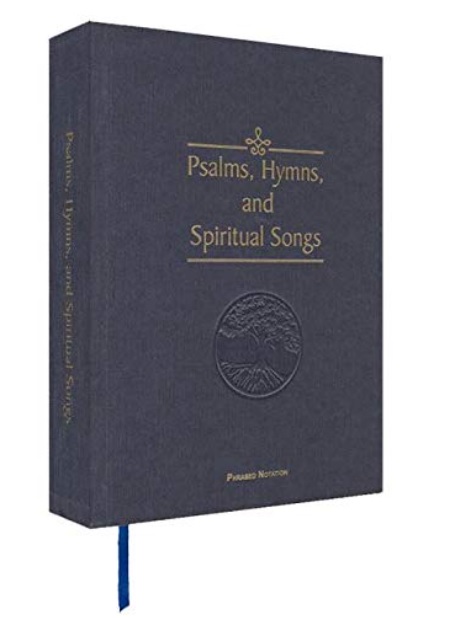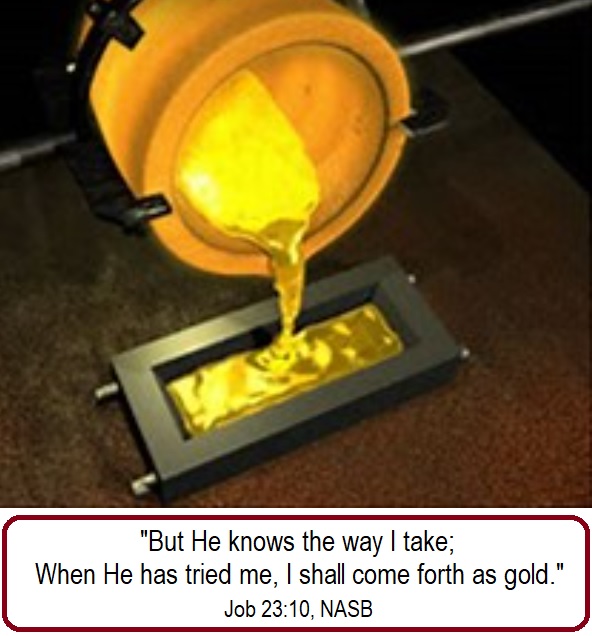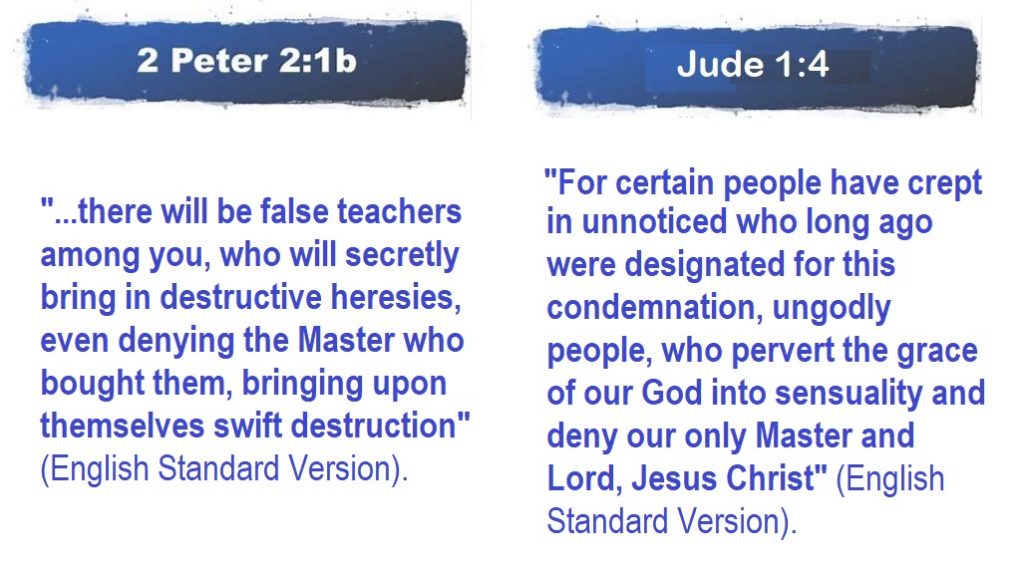“Go therefore and make disciples of all the nations…teaching them to observe all that I commanded you; and lo, I am with you always, even to the end of the age” (Matthew 28:19-20, NASB).
——————–
Contents:
1) Singing with Grace (Ron Halbrook)
2) Refinement (Terry Wane Benton)
3) Six Dangers for the Christian to Avoid (video sermon, Tom Edwards)
4) News & Notes
——————–

-1-
Singing with Grace
Ron Halbrook
Two of the passages which point to the importance of congregational singing are Ephesians 5:19 and Colossians 3:16.
“Speaking to yourselves in psalms and hymns and spiritual songs, singing and making melody in your heart to the Lord.”
Ephesians 5:19
“Let the word of Christ dwell in you richly in all wisdom; teaching and admonishing one another in psalms and hymns and spiritual songs, singing with grace in your hearts to the Lord.”
Colossians 3:16
Two aspects of worship in song are clearly taught in these passages. The first aspect is singing and making melody in your heart to the Lord — singing with grace in your hearts to the Lord. All true obedience to God presses the faith and submission of the heart of man toward God. All true worship is the outpouring of our hearts unto God. Our hearts should be full of grace, love, and truth of God as we sing praises to him.
The second aspect is speaking to yourselves — teaching and admonishing one another. We teach and encourage one another by the words we sing. Daily, private singing is appropriate and expresses the thanksgiving of the heart to God. “Is any merry? let him sing psalms” (James 5:13). But public, congregational singing adds the dimension of each one who worships God edifying others as they worship God.
These two passages, like every other passage on music in worship during the gospel age, authorize vocal rather than instrumental music. The thanksgiving and melody of the heart are to be expressed by speaking, teaching, and admonishing by means of singing psalms, hymns, and spiritual songs. Instruments of music such as harps, horns, guitars, banjoes, drums, clarinets, organs, and cymbals cannot speak the truths of God’s Word. The word of Christ cannot dwell in the heart of a mechanical instrument — no such instrument can teach and admonish people with the divine word. Both passages urge God’s people to sing from the heart, but neither authorizes them to play upon a harp.
“By his prophets” the Lord commanded the use of cymbals, psalteries, and harps in the temple worship under the law of Moses (2 Chron. 29:25). While trumpets and other instruments were being played, animals sacrifices were burned (v. 28). The Psalms speak of worshiping God with various musical instruments and with “burnt sacrifices of fatlings, with the incense of rams; I will offer bullocks with goats” (Ps. 150; 66:15). Noah was commanded to build an ark — Israel to march around the walls of Jericho — Naaman to dip seven times in the Jordan River (Gen. 6; Josh. 6; 2 Kings. 5).
We do not serve God today under the covenants and commandments of the Old Testament fathers, but under the new covenant of Jesus Christ. “God, who at sundry times and in divers manners spake in time past unto the fathers by the prophets, Hath in these last days spoken unto us by his Son, whom he hath appointed heir of all things, by whom also he made the worlds” (Heb. 1:1-2).
Jesus Christ in the New Testament does not command us to dip seven times in Jordan, to march around Jericho, to build an ark, to offer animal sacrifices, or to play musical instruments in worship! We read his command in the New Covenant to sing in Ephesians 5:19 and Colossians 3:16, but where do we read any command to play?
Christ teaches us to glorify God in our worship rather than man — singing with grace in your hearts to the Lord. Christ commands personal participation by all saints in worship rather than professional performances by a few — yourselves, one another. Christ commanded our worship to be edifying rather than entertaining — teaching and admonishing.
The modem use of solo, quartet, and choir singing violates the design of New Testament worship. Men are touted and glorified for making a display of their musical “talents.” Not all who make up “yourselves” and “one another” can qualify for the solo or choir, so the participation of all the saints is sacrificed on the altar of professional performance. The “program” is sure to be entertaining, but spiritual edification is lost. Tryouts, contests, and competitions are held — performances presented, entertainment exalted, and men glorified — in the name of worship. It is all carnality and a vain display of religion “after the commandments and doctrines of men,” “which things have indeed a show of wisdom in will worship” (Col. 2:22-23). In other words, in the name of doing God’s will men are doing their own will.
True worship glorifies God and edifies saints. As the heart overflows with the word of Christ and the praise of God, we sing with grace. True Christians worship according to the commands of Christ and not according to their own will. New Testament churches find their pattern for worship in the New Testament, not in the Old Testament, not in the vain traditions of men, and certainly not in the carnality of this modern age!
— Via Articles of the Knollwood church of Christ, August 2021
——————–

-2-
Refinement
Terry Wane Benton
All that happens to us in this life is part of refining us. Like gold is purified through the harsh fires of testing, and as testing refines and strengthens our quality of faith and character, we come out in the end with a glory that looks more like the glory of Jesus. That depends on how genuine our faith is in Jesus!
“When you pass through the waters, I will be with you; and when you pass through the rivers, they will not sweep over you. When you walk through the fire, you will not be burned; the flames will not set you ablaze” (Isaiah 43:2).
“But he knows the way that I take; when he has tried me, I shall come out as gold” (Job 23:10). Think about how Job was tested, yet he believed he would come out somewhere as gold.
David went through many heartaches and difficulties, and yet, this is the refining process in him, and here is how he looked at it all:
“For you, O God, have tested us; you have tried us as silver is tried. You brought us into the net; you laid a crushing burden on our backs; you let men ride over our heads; we went through fire and through water; yet you have brought us out to a place of abundance”(Psalm 66:10-12 ESV).
We are either refined or we get burnt up. If we are refined, the end product will be beautiful in God’s hands! Be sure you have gold quality faith in the Lord!
— Via La Vista church of Christ, August 13, 2021
——————–
-3-
Six Dangers for the Christian to Avoid
Tom Edwards
To hear the video sermon with the above title, just click on the following link while on the Internet:
https://thomastedwards.com/wordpress/6_Dangers.mp4
——————–
Matthew 11:28-30
“Come to Me, all who are weary and heavy-laden, and I will give you rest. Take My yoke upon you and learn from Me, for I am gentle and humble in heart, and YOU WILL FIND REST FOR YOUR SOULS. For My yoke is easy and My burden is light.”
— NASB
——————–
-4-
News & Notes
Folks to be praying for:
Rich and Tammy Griffey have not yet heard the results of Tammy’s recent testing. She is still not feeling well.
I’m glad to report that A.J. & Pat Joyner, and their daughter Pam, are all healed from the Covid-19.
Also Philip Hickox is now healed from Covid-19.
Shirley Davis, Lee & Vivian Foster, and their family have also been healing from Covid-19.
Ronnie & Melotine Davis have had only the one injection for their back pains, so far. They will also be having a couple more for the completion of it.
Also to keep in prayer: Rick Cuthbertson, Jeff Nuss, Frank & Ossie Andrews, Joshua Harvey, Nell Teague, Rex Hadley, Deborah Medlock, and Jim Lively.
——————–
The Steps That Lead to Eternal Salvation
1) Hear the gospel — for that is how faith comes (Rom. 10:17; John 20:30-31).
2) Believe in the deity of Jesus Christ, the Son of God (John 8:24; John 3:18).
3) Repent of sins. For every accountable person has sinned (Romans 3:23; Romans 3:10), which causes one to be spiritually dead (Ephesians 2:1) and separated from God (Isaiah 59:1-2; Romans 6:23). Therefore, repentance of sin is necessary (Luke 13:5; Acts 17:30). For whether the sin seems great or small, there will still be the same penalty for either (Matt. 12:36-37; 2 Cor. 5:10) — and even for a lie (Rev. 21:8).
4) Confess faith in Christ (Rom. 10:9-10; Acts 8:36-38).
5) Be baptized in water for the remission of sins (Mark 16:16; Acts 2:38; 22:16; 1 Pet. 3:21). This is the final step that puts one into Christ (Gal. 3:26-27). For from that baptism, one is then raised as a new creature (2 Cor. 5:17), having all sins forgiven and beginning a new life as a Christian (Rom. 6:3-4). For the one being baptized does so “through faith in the working of God” (Col. 2:12). In other words, believing that God will keep His word and forgive after one submits to these necessary steps. And now as a Christian, we then need to…
6) Continue in the faith by living for the Lord; for, if not, salvation can be lost (Matt. 24:13; Heb. 10:36-39; Rev. 2:10; 2 Pet. 2:20-22).
——————–
Tebeau Street
CHURCH OF CHRIST
1402 Tebeau Street, Waycross, GA 31501
Sunday: 9 a.m. Bible Class and 10 a.m. Worship Service. We also have a Song Service at 5 p.m. for every first Sunday of the month.
evangelist/editor: Tom Edwards (912) 281-9917
Tom@ThomasTEdwards.com
https://thomastedwards.com/go/all.htm/ (This is a link to the older version of the Gospel Observer website, but with bulletins going back to March 4, 1990.)

